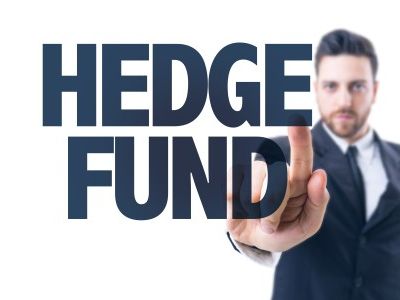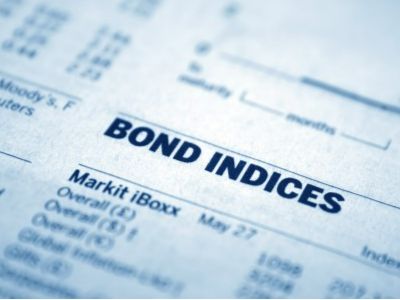"Private equity funds decrease by nine billion, reduce to 80 billion. Why did a group of stars like Banxia Investment fall behind?"
2025-02-13 10:06
The latest data shows that the current number of hundred billion securities private placements is 80, a decrease of 9 from the 89 at the end of 2024.
The number of billion-dollar private equity funds has further decreased.
The latest data from the China Private Equity Association shows that many previously billion-dollar private equity funds, including Banxia Investment and Pansong Asset Management, have changed their management scale to between "50-100 billion yuan." The billion-dollar camp is quietly changing. According to data from Private Equity Ranking Network obtained by financial community reporters, the latest data shows that there are currently 80 billion-yuan securities private equity funds, a decrease of 9 from the 89 at the end of 2024.
Specifically, ten private equity funds, such as Shanghai Baoyin Private Equity, Pansong Asset Management, Gefino Bao, Yuanxin Investment, Zhanhong Investment, Shanghai Boke Private Equity, Kuanyuan Asset Management, Banxia Investment, Rongkui Investment, and China Life City Development Industry Investment, have temporarily dropped out of the billion-dollar private equity camp.
Meanwhile, quantitative private equity fund Hainan Turing Private Equity became the only new billion-dollar private equity fund in 2025.
The number of billion-dollar private equity funds has decreased to 80, compared to 104 at the end of 2023, a decrease of 24, or 23%. Regarding the reasons for the decrease in management scale, Financial Community journalists confirmed from relevant private equity fund managers that there are two reasons:
1. Net asset value declined, leading to a reduction in scale. Last year's market rally saw many private equity funds reach new highs in net asset value, but subsequent adjustments caused some funds to retract. The market volatility in January was significant, affecting net asset values.
2. Capital withdrawal demand at the end of the year led to client redemptions. Factors such as equity market fluctuations, short-term performance fluctuations, changes in asset allocation strategies, and client performance assessment cycles can all impact client investment decisions. In addition, redemptions for clients' financial planning and fund circulation at the end of the year were also significant. This was particularly noticeable in Pansong Asset Management. Company officials stated that despite falling out of the billion-dollar camp, the current scale is still over 90 billion yuan, with a significant amount of redemptions coming from clients' profit-taking funds.
Ten private equity funds dropped out of the billion-dollar camp, with only one new entry.
There are currently 80 billion-yuan securities private equity funds, a decrease of 9 from the 89 at the end of 2024. Among them, Shanghai Baoyin Private Equity, Pansong Asset Management, Gefino Bao, Yuanxin Investment, Zhanhong Investment, Shanghai Boke Private Equity, Kuanyuan Asset Management, Banxia Investment, Rongkui Investment, and China Life City Development Industry Investment have temporarily exited the billion-dollar private equity camp, while Hainan Turing Private Equity has become a new billion-dollar private equity fund.
Compared to the end of 2024, there were 6 fewer billion-dollar subjective private equity funds, 1 fewer billion-dollar quantitative private equity funds, and a decrease of 2 in "subjective + quantitative". According to data from Private Equity Ranking Network, of the 80 billion-dollar private equity funds, there are 32 billion-dollar quantitative private equity funds, 40 billion-dollar subjective private equity funds, and 7 billion-dollar subjective + quantitative private equity funds.
Among them, Banxia Investment and Pansong Asset Management are well-known private equity managers in the market. Their withdrawal from the billion-dollar private equity camp has attracted attention.
Banxia Investment, founded by Li Bei, is known for its bold statements. In her latest public statement at the end of last year, she summarized the achievements and experiences of the past year, acknowledging that despite poor performance over the past year and some mistakes, she did not shy away from it. However, looking at where she is now, Li Bei expressed no anxiety. She believes that her level of understanding has improved significantly compared to two years ago, and she sees important turning points and opportunities, gaining a deeper understanding of transmission mechanisms. As a result, she is now in a calm and steady state. She believes that her performance will improve in the coming years.
Pansong Asset Management emerged as a popular private equity fund this year. The company started operating in January 2023, and its announcement of not charging performance fees for several products has made a successful debut. Despite setbacks in small-cap stocks and significant downturns in the quantitative neutral strategy performance in February, April, and September, Pansong remained independent of the industry. With low fees and strong performance, Pansong Asset Management attracted numerous investors through direct sales channels, and its management scale steadily increased. By March 2024, the management scale exceeded 50 billion, reaching over 100 billion by July of the same year.
After dropping out of the billion-dollar scale, it was disclosed by the company to Financial Community reporters that the current scale is still over 90 billion. Factors such as equity market fluctuations, short-term performance fluctuations, changes in asset allocation strategies, and client performance assessment cycles can all impact client investment decisions. Firstly, clients' fund circulation at the end of the year. Secondly, strategy-led actions. Pansong adopts a low-frequency systematic investment strategy, mainly predicting the stock returns in the next month. The core of the strategy is to discover the long-term value of stocks rather than capturing short-term trading opportunities, resulting in short-term fluctuations in scale.
In addition, regarding the capacity issue for quantitative products, Pansong Asset Management stated that over the past year they have continued to invest in digital management tools, talent team building, and strategy iteration to ensure that management efficiency adapts dynamically to business scale. They will continue to adhere to a "long-termism" value view in the future, building the growth of management scale on the basis of simultaneous improvement in research, risk control, and service capabilities, rather than solely pursuing numerical expansion. It is important to emphasize that the company currently has sufficient liquidity management, ample strategy capacity, and will continue to scientifically plan development pace based on market conditions and client needs.
It is worth noting that Hainan Turing Private Equity, a new billion-dollar quantitative private equity fund, is the only private equity fund in 2025 to rise to a billion. Founder Wang Yamin has rich overseas quantitative experience, serving as derivative design consultant at GMEX Group, and holding positions at institutions such as Morgan Stanley (London), Credit Suisse, etc. After returning to China, he worked at private equity firms such as Zhongliangbao, Xiangxing Asset, and Shanghai Mingxi Asset.At the end of the year, the market value of its US stock holdings was $995 million, equivalent to RMB 7.27 billion, compared to $969 million at the end of the previous quarter, with a slight increase.In terms of individual stock changes, Orient Harbor reduced its holdings of the largest heavyweight stock Nvidia by nearly 30%, but due to leverage reasons, its position in Nvidia is still not low. In terms of increasing positions, Tesla significantly increased its holdings, doubling its position. In the industry's view, Bin increasing his position in Tesla may be a "bet" on Trump winning the election. In addition, Orient Harbor also newly bought three stocks including TSMC in the fourth quarter of 2024.
Renowned private equity funds are watching this round of technology market trends
The release of DeepSeek has led to a revaluation of the value of Chinese technology stocks by domestic and foreign institutions. Since the end of the Spring Festival holiday, the market has experienced six trading days. Overall, key indices have shown a gradual upward trend. As the spring offensive enters a good phase, well-known private equity managers have positive views on technology stocks in February, but they also warn of overvaluation.
Wu Weizhi from China-Europe Rui Bo believes that after DeepSeek came out, the confidence of Chinese companies in not missing out on this wave of AI technology boom has greatly increased. He quoted the words of the technology research team, saying, "Chinese AI suddenly brightened up!" In the investment field, he believes that American technology + Chinese manufacturing are the two most competitive fields in the world today. They are also the two areas of investment that deserve the most attention.
At the same time, as US stocks have become the belief of many people, he believes that by the end of 2024, US technology stocks seem to be somewhat similar to the batch of core assets in China at the beginning of 2021, with companies possibly still being good companies, but in the following years the returns significantly lag behind, with the problem possibly lying in valuation. Investing in high-quality Chinese assets this year may be a good choice.
Yuan Lesheng Asset also pointed out in its latest monthly strategy that this year, as domestic large models make progress, especially with the strength of DeepSeek breaking through, it has sparked excitement in the industry and applications in China will accelerate landing. The firm maintains the relevant judgments in its annual strategy, with AI and implementation continuing to be market hotspots. As the starting line of the China-US AI competition rapidly narrows, the missing links in the past are being filled, and the commercialization process is accelerating.
Xia Junjie raised the question "Is it just a solo dance of AI?" in the Renqiao Asset's February views. During the long holiday, the emergence of DeepSeek R1 brought discussions about AI to a new height. Countless facts and opinions come like snowflakes, and we can feel the intense emotion behind the network or traffic, but AI is not everything, and we still need to calmly and objectively perceive the changes in the world.
Xia Junjie reminds investors that AI still has a long way to go in the future, and when and how AGI will be achieved is still unpredictable. However, the heat of the stock market has already evolved towards overvaluation, seemingly this is a "solo dance" of AI.
This article is from "Cai Lianshe", GMTEight Editor: Liu Xuan.
RECOMMEND

AMAC: In January, 137 new asset-backed special plans were filed, with a total scale of 1122.64 billion yuan.
26/02/2025

Schroder Investment: Investors should consider allocating funds to securitized credit and insurance-linked securities.
26/02/2025

Reuss County Asset Annual Reflection: Policy Tipping Point is very clear. The semiconductor industry in 2025 is a game for the brave.
26/02/2025


